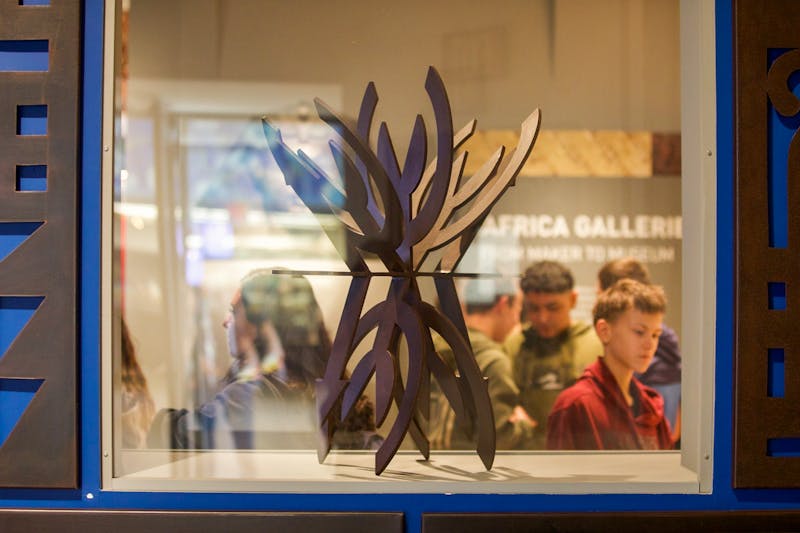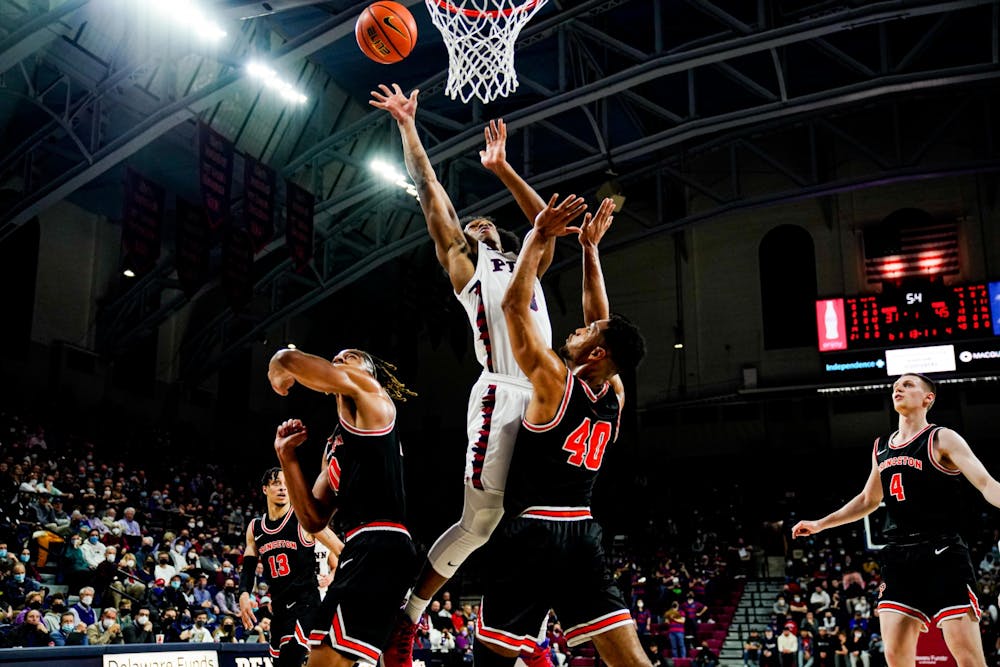
Sophomore guard Jordan Dingle attempts to score over Princeton defenders on Mar. 6, the Senior Night game at the Palestra.
Credit: Sukhmani KaurWhen associate head coach Nat Graham woke up Saturday morning to a call from head coach Steve Donahue, alerting of his absence for the evening due to COVID-19 protocols, piloting the Quakers against Ivy League leaders Princeton had not at all been in Graham's plans for Penn men's basketball's Senior Night.
Neither did Graham imagine he'd be sitting behind the mic at that night's press conference reflecting about his first time standing on the sideline, steering a ship missing many of its key sailors towards Penn's biggest Ivy League loss of the season, 93-70.
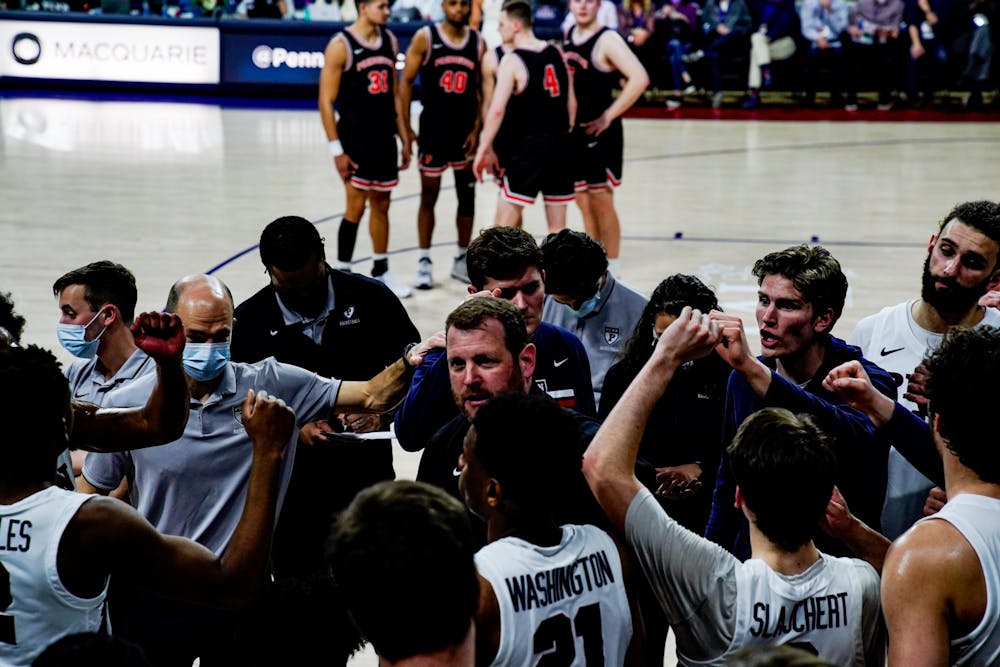
Assistant coach Nat Graham took the driver's seat against Princeton with head coach Steve Donahue absent from COVID-19 protocols.
"I wasn't really ready for an opening statement," Graham began, his unfamiliarity with press conferences being followed with honest reflections in his characteristically casual demeanor.
The night was marred with absences — first, head coach Donahue and freshman George Smith due to COVID-19 protocols, senior Jelani Williams from injury, and then junior Michael Moshkovitz who fouled out after contributing just 15 minutes to the game. Graham’s toolkit through the night had been sparse.
"It was hard, and there was moments where I was searching — even not having George today — just another body, and another guy that's physical and can guard," Graham said. "The hard thing with them is, if you switch, they post you up with different guys."
Even the student support was not as vibrant as Penn's last home game, a Palestra-shaking win against Harvard, as the first weekend of spring break left the Penn student section meager. Fans remained mostly seated, and the Penn bench carried much of the vocalized support for the team.
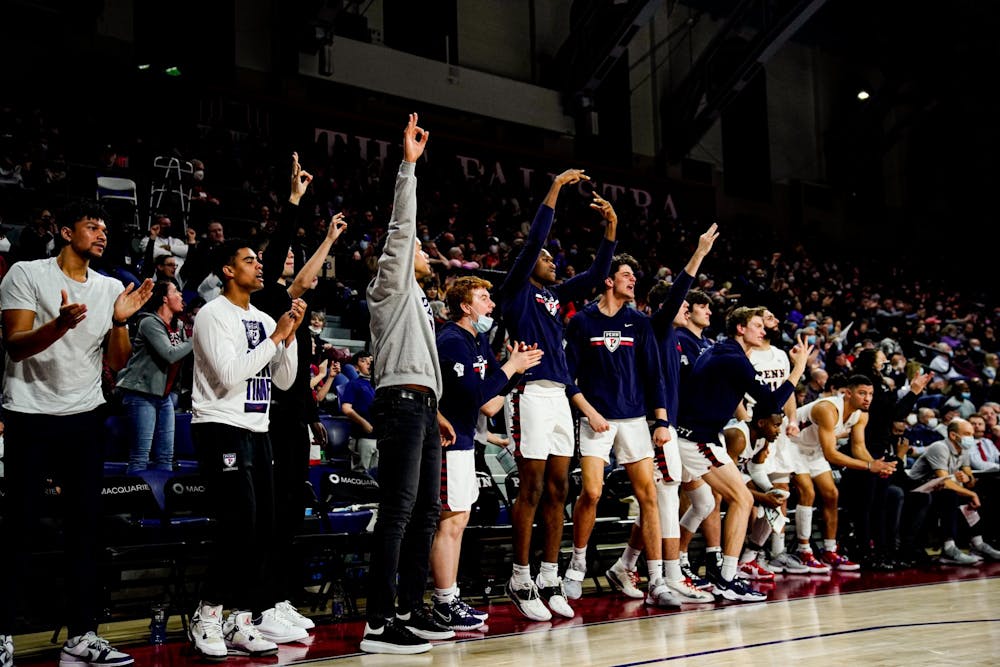
Penn's bench fueled much of the volume in the Palestra, with most students having left campus for spring break.
But even in the absence of its strongest proponent, the Quakers carried Donahue’s message of Whanau through the night.
When the name of senior Michael Wang was announced during the traditional walk out of the graduating seniors, he was accompanied by all members of the team who stepped in as his family away from home.
The team also sat in solidarity with their continuing message of protest, demonstrated by remaining seated during the national anthem, arms over each others’ shoulders.
Media timeouts were occupied by moments to honor the greatest of Penn sports, including the half-century reunion of Penn men's basketball teams of 1970-71 and 1971-72, which brought program legend David "Corky" Calhoun to the Palestra floor once again.
Once the clock was counting, the spotlight belonged again to sophomore Jordan Dingle, who returned after sitting out against Dartmouth due to injury. Every time he scored, a homemade sign from the corner seats nearest to the bench flashed his initials, “J.D.,” in shiny, foil letters. Whenever the sign waved, the Quakers were holding the rhythm in their hands.
Moshkovitz and sophomore Clark Slajchert translated their link-ups to early numbers on the board, with sophomore Max Martz guided directions while observing the movements of Princeton on the floor.
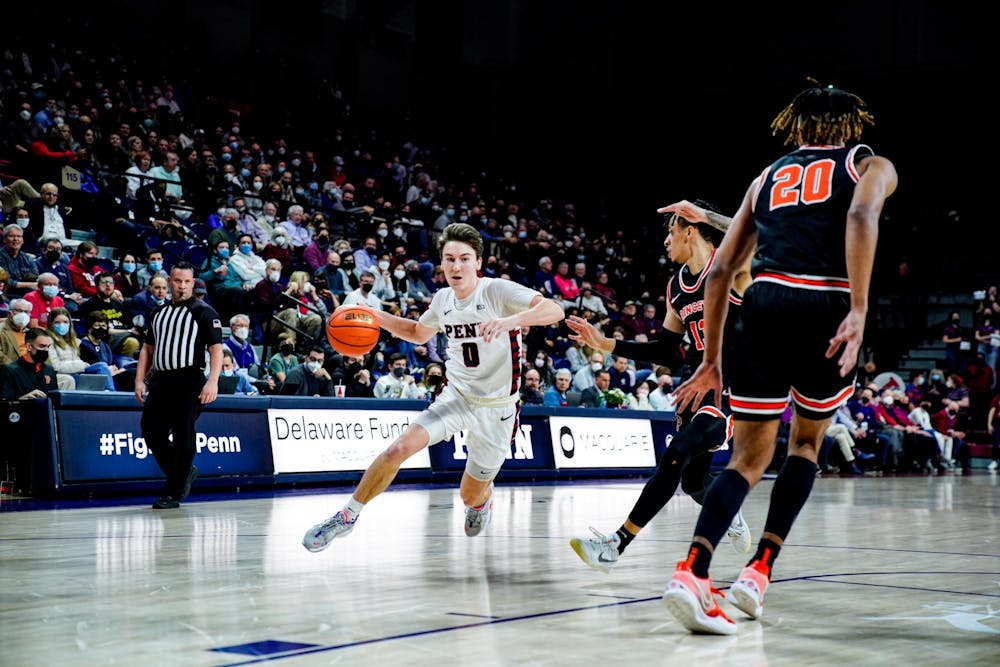
Sophomore guard Clark Slajchert understood his assignment as always, contributing the second-most points in 35 minutes for the Quakers.
Senior Bryce Washington also made sure to put his name on the scoresheet, as he played a season-high 37 minutes.
"We lose two guys that have been playing a lot — we were like, maybe we should go with Bryce, because at least he's played meaningful minutes before," Graham said. "We wanted to play more guards out there as much as we can, and Bryce can drive it; shoot it."
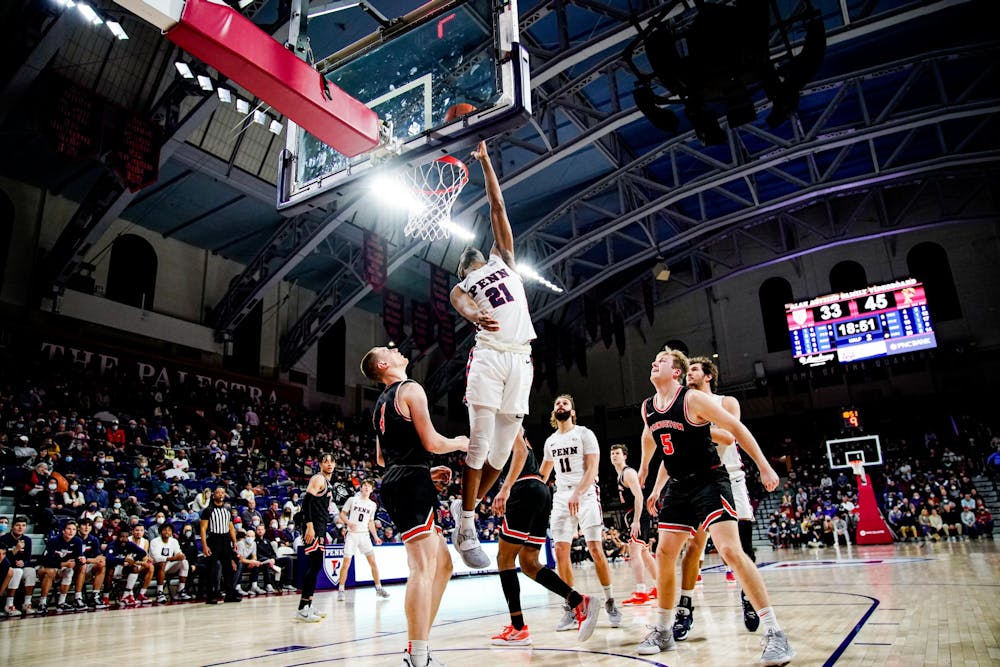
Senior guard Bryce Washington ensured his name would be remembered on Senior Night for the Quakers.
Graham’s presence wasn’t as momentous early in the game. But he grew taller in his role as the clock ticked on, raising his volume to match that of Princeton’s head coach Mitch Henderson, whose barking orders could be heard frequently above the Palestra noise.
Graham faced the tough challenge of pushing Penn to chase the lead. But the Tigers pounced at every fault in the Quakers’ game in an effort carried by two of their international players: Jaelin Llewellyn of Canada and Tosan Evbuomwan of England.
"I think our guys feel that like, every little thing we do slightly wrong, it's like they found it," Graham said. "They've got a veteran group. Tosan is tough. They can pass and they're surrounded with four perimeter guys who can shoot, and a couple of them could do other things, and it just makes it very hard to guard them."
Princeton's threes dragged the lead farther from Penn, as the Tigers constantly read and preyed on the Quakers’ weaknesses.
"They just don't make many mistakes," Graham said. "Everything we tried to do differently defensively, it's like they found the one thing that was wrong with it and took advantage of it."
And just as Moshkovitz’s performance brought thoughts of what Penn would do without him, he was fouled out and instead had to guard the bench for the rest of the game.
"We tried to keep it to the things that we usually would have done, and it wasn't necessarily how we play everybody, but how we were going to try to play [Princeton]," Graham said. "Some of them worked, and some of them didn't, but the biggest thing was that we just couldn't stop them."
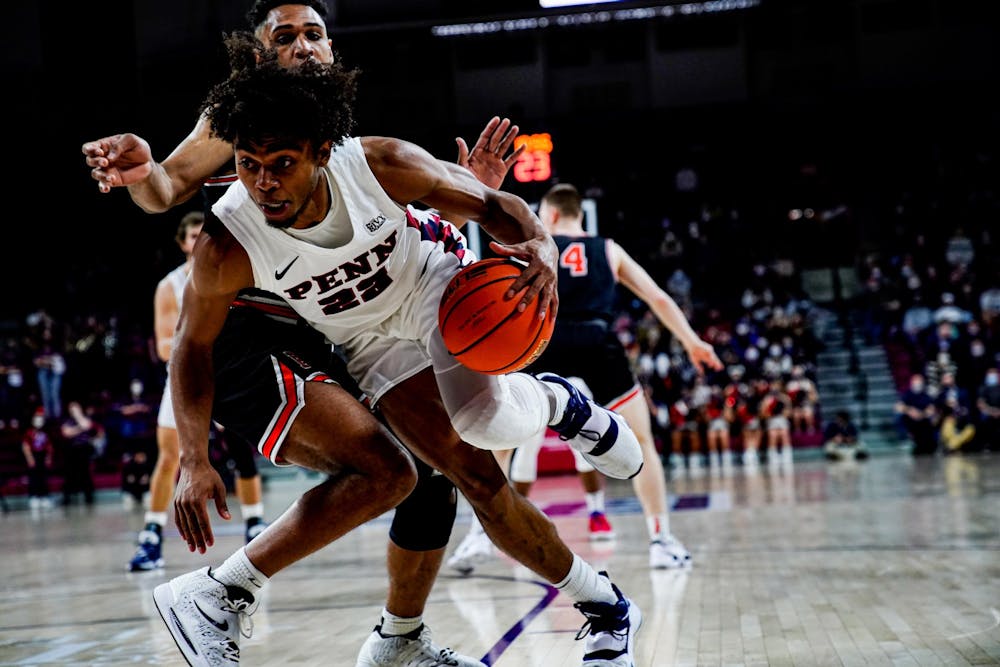
Junior guard Lucas Monroe set a career-high 14 rebounds after foul trouble caught junior forward Michael Moshkovitz out of commission.
For the second time this school year, Princeton came to Philadelphia and spoiled Penn’s Senior Night, while simultaneously raising the Ivy League title trophy on Penn home grounds; the previous occurring on Rhodes Field against Penn men’s soccer.
While he had one of the most populated statistics next to his name on the score sheet, Dingle was the last to follow his teammates into the locker room after the final buzzer. His steps lagged as if he was in reflection of what was left on the floor behind him, despite having put up 31 points to almost match his season-high against Harvard.
"I think we should be okay," Graham said. "The biggest focus is, this week, just getting back to who we were for that stretch from Christmas to a couple of weeks ago."
The Daily Pennsylvanian is an independent, student-run newspaper. Please consider making a donation to support the coverage that shapes the University. Your generosity ensures a future of strong journalism at Penn.
Donate






